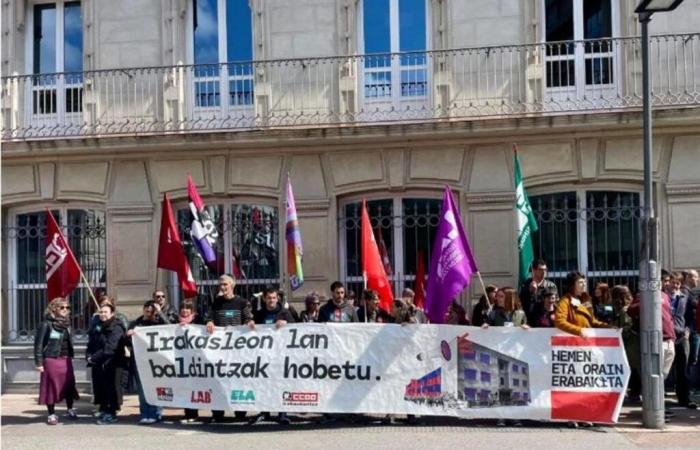
The sector table convened yesterday between the Department of Education and the public unions, meeting with the objective of reaching an agreement and … Thus avoiding the strike among teachers next week, ended without consensus. And although the lehendakari has been shown this Friday confident that both interlocutors, who meet again from the twelve this noon – reach an understanding and close a pact before they arrive eight o’clock in the morning of next Monday, Imanol Pradales has also questioned the pressure strategy promoted from the union power plants.
The Head of the Basque government, in response to EH Bildu during the control plenary held in the Autonomous Parliament, has spot to those who “present the strike as the first step to start the negotiation” to “explain to society, the fathers and mothers, why it does.”
“The will of the Government is still to be agreed and we have demonstrated it a few weeks ago,” said Pradales, in allusion to the pacts reached with the Haurreskolak, the dining rooms or the special education and that left without effect the stoppages that they then had convened in February. However, the public network unions of non -university education maintain the strike – they have also called demonstrations for tomorrow in the three Basque capitals – by declining yesterday the new proposal of the regional executive. In January and February, ELA, Lab, Steilas and CC OO have already started the first cycle of strikes due to the lack of agreements for the renewal of the agreement in the Basque public education sector.
The Lehendakari has assured that from their government their priority is very clear: “to improve the results of the Basque education system.” And to achieve that goal, he said, he highlighted the concrete measures that the Department of Education has put on the negotiating table: “More resources in the classroom at the service of teachers, increased tools available to teachers, decrease in ratios, increase in professionals and remuneration improvements.” Therefore, Pradales has wondered if “we really improve the results of Basque students with a strike, paralyzing public education at a transcendental moment of the course for kids.”
For all these reasons, the Lehendakari has asked “a reflection on the consequences of strikes for Basque students” and has also claimed “responsibility, negotiating will, without red lines, putting in the center of negotiation the improvement of the Basque public school and not other objectives.” “I think the agreement is possible,” the Lehendakari insisted.
In any case, Pradales has defended that the situation of the Basque Education System “deserves a good assessment as recognized by citizens.” Although he did not want to fall into self -complacency by ensuring that “it is true that we have deep and complex challenges ahead and it is essential to face them.” “Our goal is clear: to improve the results of education,” he reiterated.
Regarding the challenges, Pradales has cited the improvement of the results, overcome segregation, teacher training, have more resources in classes, adapt to new technologies, reduce ratios or improve the capacity in Basque. “The educational pact and the law approved by this Parliament mark a correct path to face these challenges,” he said before remembering that the strategic plan has just been launched.





